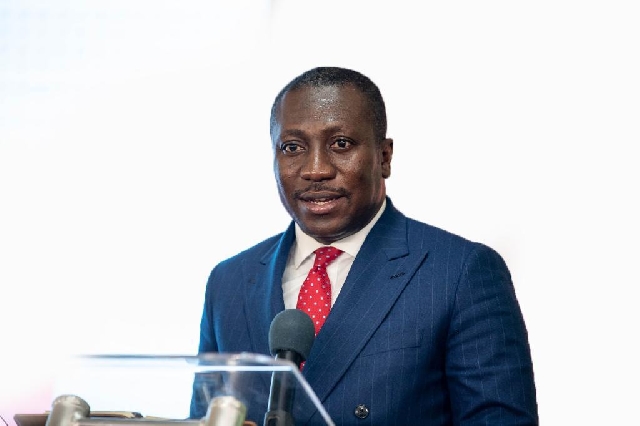Afenyo-Markin decries attitude deficit of Ghanaians
 Alexander Afenyo-Markin, MP for Effutu
Alexander Afenyo-Markin, MP for Effutu
Minority Leader Alexander Kwamina Afenyo-Markin has raised alarm over what he describes as a growing “attitude deficit” among Ghanaians, warning that it could undermine the country’s economic progress and threaten its democratic foundations if not urgently addressed.
Speaking on the need for a cultural shift, Afenyo-Markin emphasised that while Ghana has recorded positive economic data in recent times, sustaining that momentum will be impossible without a change in mindset among citizens.
According to him, many Ghanaians continue to view government interventions as handouts or “freebies” rather than opportunities to empower themselves and contribute to national development.
“The challenge is not just policy or leadership—it’s an attitude deficit,” he stated.
“There’s a general lack of accountability and responsibility among citizens, and that is stalling our progress.”
He lamented that political interference has worsened the problem, with successive governments failing to hold beneficiaries of state programmes accountable.
Citing historical examples, he mentioned the failure of beneficiaries to repay loans under several government initiatives, including:
Former President Rawlings’ Poverty Alleviation Fund
President Kufuor’s MASLOC initiative
President Mahama’s Chapter One
President Akufo-Addo’s NEIP (National Entrepreneurship and Innovation Programme)
“In each of these cases, many people simply took the funds and walked away,” Afenyo-Markin said.
“The question is: why isn’t the government going after people who failed to pay for tractors and other support? The answer is politics. We care more about votes than about discipline.”
He warned that unless this cycle is broken, the country will remain stuck in a pattern of stagnation, where programmes are introduced but fail to deliver lasting impact due to poor follow-through and a lack of civic responsibility.
Calling for a national dialogue, Afenyo-Markin urged political leaders, civil society, and the citizenry to come together to chart a new course—one that fosters a culture of accountability, ownership, and responsibility.
“If we don’t change our approach and start demanding more from both our leaders and ourselves, our democracy could be at risk,” he cautioned.
Source: Classfmonline.com
Trending News

Four arrested in lynching of 70-year-old woman accused of witchcraft in North East Region
15:27
Afenyo-Markin decries attitude deficit of Ghanaians
15:41
Weija-Gbawe MP inspects ongoing inner-road projects
01:12
Ghana seeks an amicable resolution of U.S. visa restrictions
14:03
Kennedy Agyepong’s actions contributed to NPP’s 2024 defeat –Appiah Koranteng
01:15
VRA reaffirms commitment to sustainable community development across operational zones
16:26
E/R: Okada rider dies after alleged assault by illegal mining task force
13:29
President Mahama renews call for reparations at AU mid-year meeting
21:36
Police officer interdicted for assaulting journalist during Ablekuma North re-run
13:04
NPP reforms artificial not targeted at uniting party-Lecturer reveals
00:47



